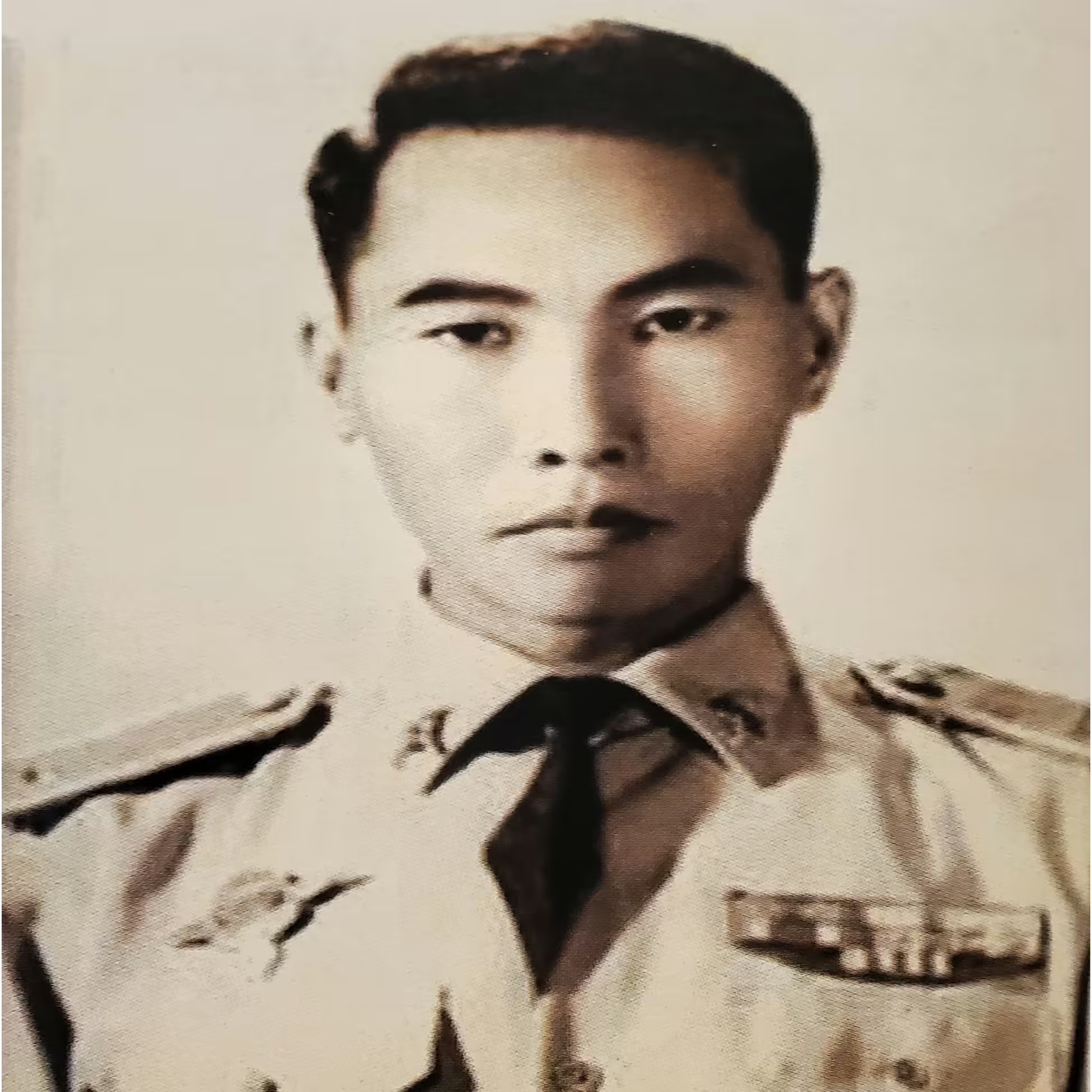Vue Mai – A Committed and Self-sacrificial Leader

Vue Mai was born on February 2, 1936, in Xiangkhouang province. His father is Chong Neng Vue, a well-respected leader of the Vue clan who passed away in the early 1980s at Ban Vinai refugee camp in Thailand. Vue Mai was the only son and had one younger sister who passed away in the late 1990s here in the United States. He married two wives. His first wife was Mo Plia Lee, and his second was Chao Lee. He had a total of seven boys and one girl combined. His first wife passed away in 1998, and three of the oldest sons also passed away. Those still living are his second wife, four of his younger sons, and a daughter.
As a teenager, he served as a Lieutenant in the Royal Lao Armed Forces from 1957 to 1961. By 1962, he was ranked as a Major, commanding the battalion 2nd BV 21-2 unit for the Royal Lao Armed Forces and CIA’s Special Guerrilla Unit (SGU). During the Vietnam War, he was among the Hmong who fought in a CIA-supported army against the communists alongside General Vang Pao. He was a respected leader of the Hmong resistance. Many of the Hmong leaders in the United States said Vue Mai knew all the key players inside and outside Laos.
After the war ended in 1975, he and his family escaped to Thailand and settled in Ban Vinai refugee camp. By 1978, he became the Ban Vinai refugee camp leader and served until it was closed down in 1992. In 1979, his second wife, Chao Lee, and three of his younger children came to live in the United States. Later, in 1985, his first wife and the rest of his children also settled in the United States. As a refugee camp leader, he had the privilege of visiting his family in the United States many times, with his last visit to the United States in 1991.
In 1992, he was given two options: one, he could resettle in the United States, reuniting with his family, or two, he could set an example for the Hmong refugees by leading them back to Laos. Before making his decision, the United Nations High Commissioner for Refugees (UNHCR) and U.S. State Department officials met with him regularly, encouraging him to return and assuring him of his safety. Vue Mai felt he would be neglecting his greater duties as a Hmong leader if he didn’t return. He sincerely had faith in the UNHCR repatriation program. Then, in November 1992, he repatriated to Laos. While in Laos, he limited his contacts to only a handful of Lao government and UNHCR officials. He kept a distance from other visitors, knowing that the Lao government was closely monitoring him. The following year, on September 11, 1993, he disappeared. No one knew what happened to Vue Mai. He was an astonishing leader, committed to his people and duties. He had shown outstanding leadership during the war and a time when his people needed him the most in the refugee camp. His spirit and determination live on in the Hmong people’s hearts.
Credit to former VNA President Adam Vue and his Administration
